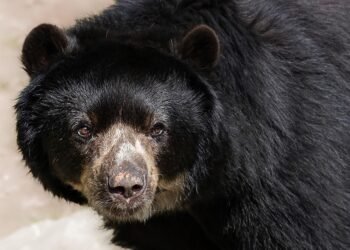Surviving a Close Encounter: Tales of Mountain Lion Confrontation
Introduction
Encountering a mountain lion in the wilderness can be a terrifying experience. These majestic creatures are powerful predators that command respect and caution. However, with the right knowledge and preparation, it is possible to survive a close encounter with a mountain lion. In this article, we will explore tales of mountain lion confrontation and share valuable tips on how to stay safe in their presence.
Understanding Mountain Lions
Mountain lions, also known as cougars or pumas, are large carnivorous cats that inhabit various regions of North and South America. They are highly adaptable predators that can thrive in a wide range of habitats, from dense forests to open plains. Mountain lions are solitary animals and are known for their stealth and agility. They are capable of taking down prey much larger than themselves, making them one of the top predators in their environment.
Tales of Mountain Lion Confrontation
Many hikers, campers, and outdoor enthusiasts have encountered mountain lions in the wild. While most of these encounters end without incident, there have been some harrowing tales of survival. One such story is that of a hiker who was stalked by a mountain lion while hiking alone in the Sierra Nevada mountains. The hiker managed to scare off the mountain lion by making loud noises and waving their arms, but the experience left them shaken and wary of venturing into the wilderness alone.
Another tale involves a group of campers who were visited by a curious mountain lion while cooking dinner at their campsite. The mountain lion approached the campers slowly, sniffing the air and watching them intently. The campers remained calm and stood their ground, making themselves appear larger by raising their arms and shouting loudly. The mountain lion eventually lost interest and wandered off into the night.
Surviving a Close Encounter
If you find yourself face to face with a mountain lion, it is important to remain calm and follow these tips to increase your chances of survival:
1. Make Yourself Look Big
One of the most effective ways to deter a mountain lion is to make yourself appear larger and more intimidating. Stand tall, raise your arms above your head, and wave them slowly to make yourself look bigger. This will show the mountain lion that you are not an easy target and may discourage it from attacking.
2. Make Noise
Mountain lions are ambush predators that rely on stealth to catch their prey. By making loud noises, such as shouting, clapping, or banging pots and pans, you can alert the mountain lion to your presence and potentially scare it off. Be loud and assertive to show the mountain lion that you are not afraid.
3. Back Away Slowly
If a mountain lion approaches you, it is important to back away slowly while facing the animal. Do not turn your back on the mountain lion or run away, as this may trigger its predatory instincts. Maintain eye contact with the mountain lion and continue to make yourself appear large and intimidating as you slowly retreat to safety.
4. Do Not Approach or Feed the Mountain Lion
It is important to remember that mountain lions are wild animals and should be treated with caution and respect. Do not approach or attempt to pet a mountain lion, as this can provoke an aggressive response. Similarly, do not feed a mountain lion, as this can encourage it to associate humans with food and lead to dangerous behavior.
Conclusion
Encountering a mountain lion in the wild can be a frightening experience, but with the right knowledge and preparation, it is possible to survive a close encounter. By understanding mountain lion behavior and following these tips for staying safe, you can increase your chances of avoiding a dangerous situation. Remember to remain calm, make yourself look big, and make noise to deter a mountain lion from approaching. With these precautions in mind, you can enjoy the beauty of the wilderness while staying safe from potential predators. Stay informed, stay vigilant, and stay safe in the great outdoors.







